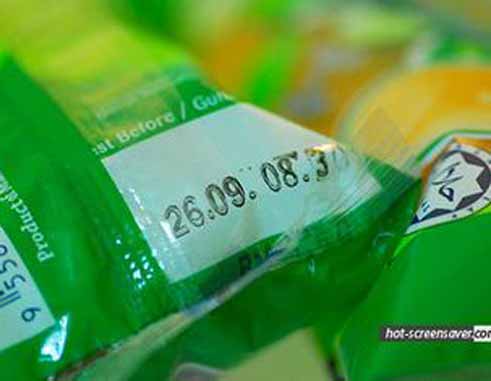IN Saint Lucia it is very common for businesses to lower the prices of foods that are close to the expiry date; and consumers without pausing to think about how detrimental this could be, immerse themselves into these purchases. Are consumers placing their lives at risk when they consume expired goods? Is it wrong to consume foods after the “best before” date? What do these terms mean?
Information about dates on pre-packaged food is a valuable source of information for consumers. Therefore, a basic understanding of what terms are used can help better understand the labels.
According to the Canadian Food Inspection Agency, Durable Life means the anticipated amount of time that an unopened food product, when stored under appropriate conditions, will retain its freshness, taste, nutritional value, or any other qualities claimed by the manufacturer.
“Use by, best by, best-before, best if used by” – these “use by” and “best” dates are generally found on shelf-stable products such as mustard, mayonnaise, and peanut butter.
These dates, also known as a “durable life date”, tell you how long the product is likely to remain at its absolute best quality when unopened. These dates do not guarantee product safety; they only provide information about the freshness and potential shelf-life of the unopened foods.
Sell-By: Most sell-by dates are found on perishables like meat, seafood, poultry and milk. The date is a guide for stores to know how long they can display a particular product.
Consumers should always buy products before the sell-by date expires. However, it can still be stored at home for some time beyond that date, as long as safe storage procedures are followed.
Expiration Date – This is the last date that a product, should be used before it is considered spoilt or ineffective. After the expiry date, the product may not have the same nutrient content declared on the label. It is important to note that food should not be eaten if the expiration date has passed. They should be discarded.
Eating food that has passed the “best before” date
• You can buy and eat foods after the “best before” date has passed. However, when this date has passed, the food may lose some of its freshness and flavour, or its texture may have changed. Some of its nutritional value, such as vitamin C content, may also be lost.
• Remember that “best before” dates are not indicators of food safety, neither before nor after the date. They apply to unopened products only. Once opened, the shelf life of a food may change.
• Never rely totally on your nose, eyes or taste buds to judge the safety of food. You may not be able to tell if a food may cause foodborne illness by its look, smell or taste. And remember: “If in doubt, throw it out!”
• Foods that are likely to spoil should be properly stored, and they should be eaten as quickly as possible. Harmful micro-organisms that lead to foodborne illness can grow in foods, even if they do not appear to be spoiled.
Remember as a consumer you have rights but with rights come contingent responsibilities – it is your responsibility to examine your goods thoroughly before buying, read the labels, read the warnings, and check for the expiry date and the best before dates.
Consumers take charge and shop wisely!
By Merlicia Williams-Davy, Information Officer for Ministry of Commerce, Business Development, Investment and Consumer Affairs





![Simón Bolívar - Liberator of the Americas [Photo credit: Venezuelan Embassy]](https://thevoiceslu.com/wp-content/uploads/2025/12/Simon-Bolivar-feat-2-380x250.jpg)



